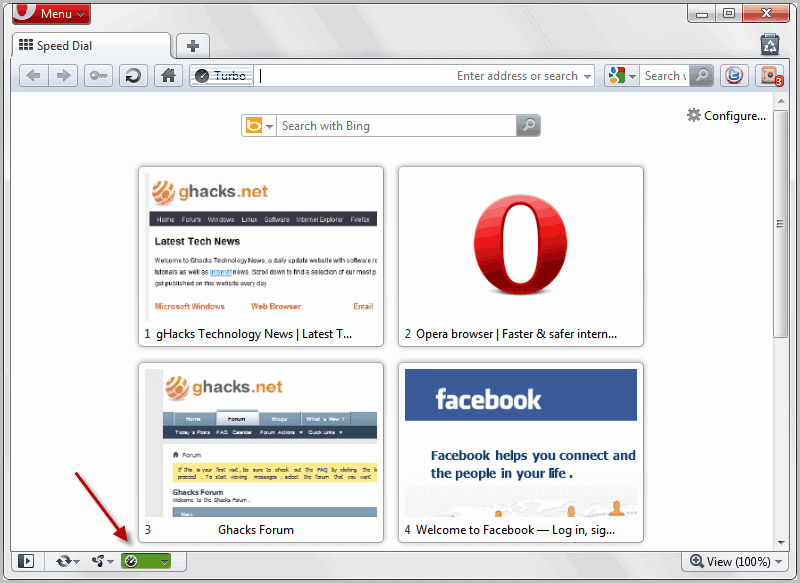How to protect your privacy on the Internet
With UK parties proposing to monitor the activities of all country residents come new fears of an 1984-esque government that with a single mouse click can find out everything there is to know about its citizens.
When you look at what is openly proposed in non-totalitarian countries, and the monitoring that happens without the public knowing about it, you'd better be prepared to take your privacy into your own hands.
If the charter passes, UK ISPs and phone providers will be required to record information about the Internet, text (as in SMS) and email use of all British residents.
While that does not include contents, it does include the visited Internet sites, and the people that UK residents have contacted via email or text messages. The data must be retained at least for a 12 month period before it can be deleted.
Protecting your privacy
Here is a set of options that you have to protect your privacy on the Internet and when using your mobile phone.
- Privacy related browser extensions: Extensions like HTTPS Everywhere or Perspectives can improve your privacy while you are browsing the Internet.
- Proxies: A proxy server disguises your IP when you make connections. Your ISP would for instance only see your connection to the proxy server and not the actual destination on the web that you are connecting to. This is of course only true if the proxy is configured correctly. Browser extensions like Proxilla or Go2 Proxy make the process more comfortable. You can alternatively check out this free web proxy list or use http / socks proxies instead.
- Opera Turbo: This is a feature of the Opera browser that redirects all of the browser's traffic through an Opera server. It works like a proxy, but with the added benefit that traffic is compressed on the server to reduce bandwidth costs. While initially designed for low speed Internet connections and pay by traffic plans, it can be used as a proxy. And Opera Turbo is maintained by a reputable company. Update: Google Chrome offers a similar feature now at least in the mobile version (and when you install this extension also in the desktop version)
- Virtual Private Networks (VPN): VPNs are without doubt the most comfortable and secure option. You establish an encrypted connection to the VPN provider so that spying is stopped in its tracks. The sites you connect to only see the IP of the VPN provider and not your own so that you can't be monitored this way as well (unless you happen to share or leak information on the sites). VPNs come at a cost, usually between $5 to $10 per month.It is recommended to pick a VPN provider that is not operating from the country you are living in, or that has ties to the country as the provider may be obligated by law to record your traffic. Most smartphones support VPN connections as well so that this is taken care of when you sign up for a virtual private network, provided you configure your phone to connect to it.
- Tor: Tor routes your Internet traffic through several servers that only know the server before and after them in the chain. Tor is free to use, and you can download a variety of tools and programs to use it on your devices. Tor is not only available for desktop computers, but also for Android. The downside is that you can't use TOR that well for for activities that require lots of bandwidth.
- Encryption / email: If you are using a VPN, then traffic to and from your email provider is automatically encrypted as well. You can alternatively encrypt your emails in Linux or in Thunderbird. Remember that the methods are only effective if all involved parties encrypt their email traffic. It does not do you anything good if you encrypt your email traffic, but a recipient in a country that is spying on its citizens is not.
Closing Words
Did I miss an option that you are making use of? Are you protecting your Internet connection? If so, how?





















VPNs are just the right services to stay anonymous and SSTP is the most secured protocol. I At this moment I’m testing more services and I keep an eye on latest VPN promotions: http://www.starvpnreviews.com
ivpn.net is $100 for a year and very fast. They also have the best privacy policy of any VPN I’ve found. They delete logs every ten minutes.
http://Www.ivpn.net
If you want total privacy you need an OS that boots to a flash drive and wipes ram at shut down. The flash drive can easily be hidden under a floor board as well. You need Liberté Linux. http://dee.su/liberte
I have to “second” Do Not Track and Ghosty. These add layers of protection, while nothing is 100% secure.
[ example for some on here to think of … If a robber knows (or could know) how to pick a lock, …. Does that mean you will stop closing and locking your front door at night? ] Every little bit of security enhancements help.
I am shocked (maybe I read too fast and overlooked it) that my “#1 must have” addon has not been mentioned. NoScript for Firefox (and I think there is one Martin had on here, “ScriptNo’ for Chrome based browsers too). Time and Time again I see security articles mentioning browser exploits and saying “if you have NoScript installed, you will most likely be protected from this exploit”
ALSO (another one I found thanks to this site) is RequestPolicy (Firefox addon)
-Xmetalfanx
oops .. .after re-reading it seems my post is more “security” then “protecting your privacy” … still good tips though…
It’s hard to find a real way to protect your online journey. SSL has been powned, proxies are not secure unless you install your own ones and do exactly that you are doing. Never used Opera Turbo. VPNs should be secure? Maybe but i wouldn’t rely 100% on them. Same as Tor. Encrypting messages is good but can be hacked with the right tools and power. There are too many security holes, protocol bugs and other related issues to be 100% sure. If you use services and servers not yours, you cannot be 100% sure (same question as Cloud computing) If someone from an organization want to spy and intercept you, there is nothing you can do to prevent this, unless you detach your LAN cable. Worth to read thanks Martin.
Martin which VPN would you recommend and which one are you using? Thanks
I have been using VyprVPN up until recently as it was included in my Giganews subscription. But I canceled the subscription and find ProXPN to be a good alternative. It is $9.95 per month, but they also have a free account that limits you to 300KB bandwidth which is still ok for many tasks. Check out the review here: https://www.ghacks.net/2012/07/25/proxpn-vpn-provider-with-user-friendly-policies-good-free-offering/
Good, inclusive article. While cynics will come and say nothing you do will protect you 100%, many of these steps add that one level of abstraction that will take a lot more effort for someone tracking you to get through. This is especially true if the server you’re using as a proxy (or other type of intermediary) exists in another country. Of course, that also means it might be a bit slower, but these days not so bad. Higher latency is the most noticeable effect, but only if you’re a gamer or otherwise need pseudo real-time networking.
TOR is something I was never very comfortable with, because most home users are going to (at least attempt) to block it from ‘sharing’ their connection with the rest of the network. That means you have a few exit points for the network, which is why it is usually very slow. The next question is who is running the exit points that keep the TOR network sustained. Some are private users willing to be part of the community, while others are universities. I suspect the rest just might be intelligence gathering agencies, law enforcement, copyright police, or other people who have an interest in seeing what people are trying to hide ;p. Think about it ;).
I prefer using a VPN over TOR, simply because I know the company I’m dealing with. I’m always using a vpn when I’m on a trip / holidays to make sure that no one at the destination can snoop on the connection.
One is kidding one self if one thinks any of this will give you privacy.
Privacy is gone and it’s not coming back.
You are so full of shit….privacy is not gone….you work for the government or something and want all UK people to give up?
Protect against all unwanted cookies
Protect against all unwanted flash cookies
Protect against the browser referrer
Protect against the browser user agent
Protect against unwanted javascript access
Use HTTPS / SSL encryption wherever possible
Learn your browser security. Use these tests to guard your browser identification
http://ip-check.info/?lang=en
http://www.browserleaks.com/
http://browserspy.dk/
http://panopticlick.eff.org/
Use anonymous proxy websites
https://www.hidemyass.com/
https://proxify.com/
Use disposable email addresses
http://www.mailinator.com/
Encrypt private information contained in files sent or stored online
Never give out real personal details online
Ghostery is the first addon I install these days. It blocks all those nasty tracking cookies. Since the icon displays the number of snoops per website, I’ve made a game of it.
The most tracking cookies I ever blocked on one site is 27. Can you beat my high score? :)
how about this?
http://fastun.com/
im using it alongside opera turbo
great for browsing adult images sites
excellent idea to use opera turbo for privacy. not sure if dns lookups are proxied though
Do Not Track Plus is a great, free add-on for controlling companies and social networks that tracks your movements on the Internet http://www.abine.com/dntdetail.php